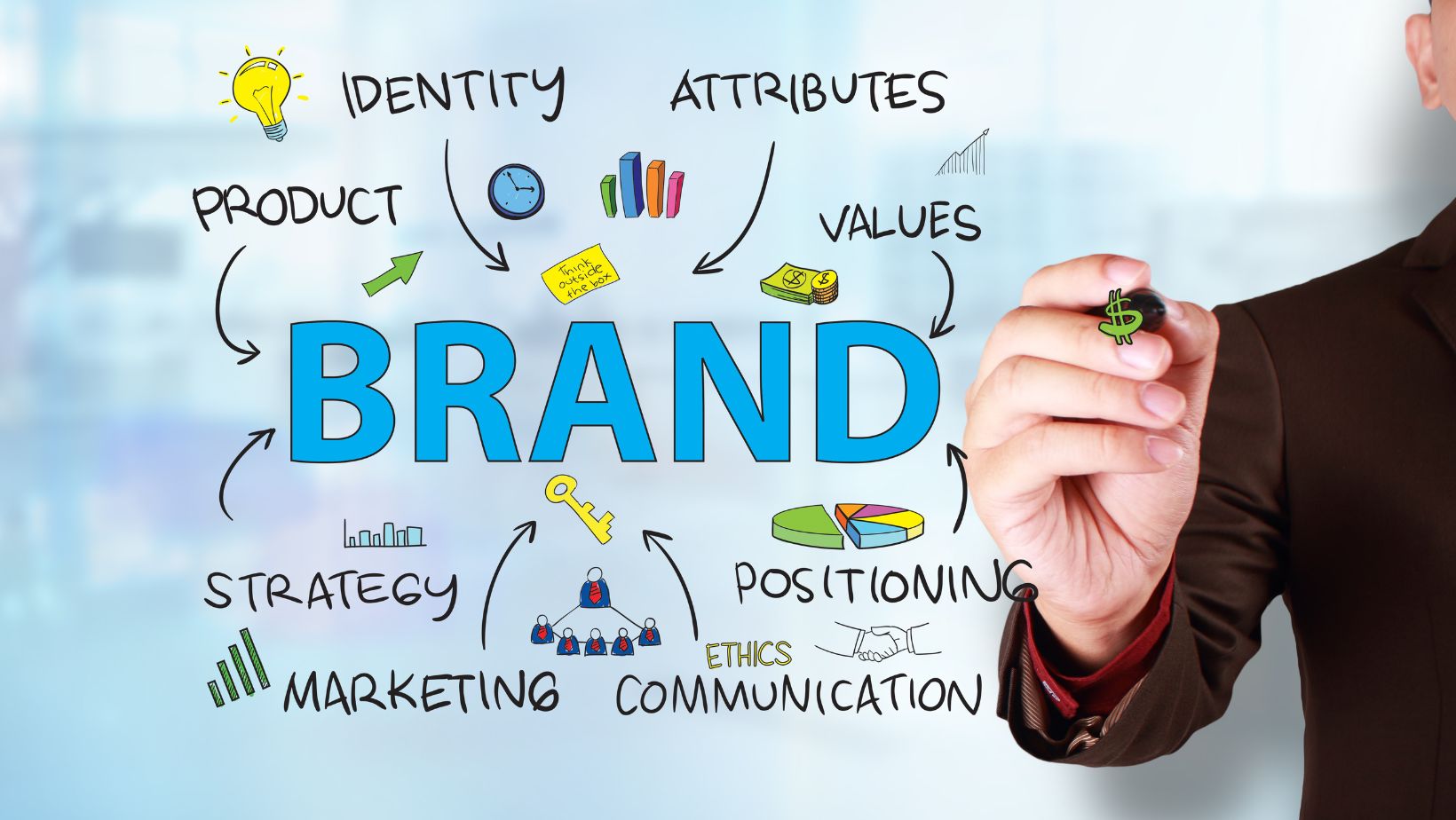In today’s fast-paced business world, keeping up with emerging technologies is like trying to catch a greased pig at a county fair—exciting yet slippery. From artificial intelligence to blockchain, these innovations are transforming how companies operate, making them faster, smarter, and, dare we say, cooler.
Businesses that embrace these technologies don’t just stay afloat; they soar above the competition like a drone on a mission. Imagine automating tedious tasks while your competitors are still wrestling with spreadsheets. It’s not just about survival; it’s about thriving in a landscape that’s changing faster than a cat video goes viral. Buckle up as we dive into the latest trends that are reshaping the business landscape and discover how to ride the wave of innovation instead of getting left behind.
Table of Contents
ToggleOverview of Emerging Technologies in Business
Emerging technologies transform business landscapes, driving innovation and efficiency. Artificial intelligence plays a crucial role, automating tasks and providing data-driven insights. Companies leveraging AI report enhanced decision-making capabilities and increased productivity.
Blockchain technology revolutionizes data security and transparency. This decentralized ledger system allows businesses to conduct transactions more securely while minimizing fraud. Firms utilizing blockchain benefit from improved trust and accountability in supply chains.
Robotic process automation (RPA) streamlines repetitive tasks, allowing employees to focus on strategic initiatives. Organizations implementing RPA see reductions in operational costs and significant time savings. Furthermore, RPA integrates seamlessly with existing systems, boosting overall performance.
The Internet of Things (IoT) connects devices and systems, generating vast amounts of data. Businesses can harness this data for real-time analytics, leading to informed strategic decisions. Companies adopting IoT observe improvements in customer engagement and operational efficiency.
Cloud computing offers scalable resources and flexible solutions for businesses. As organizations transition to cloud-based platforms, they experience greater collaboration and reduced IT infrastructure costs. Adopting cloud systems leads to a more agile business environment.
Edge computing enhances data processing speeds by performing computations closer to the data source. This innovation reduces latency, benefiting industries like manufacturing and logistics. Organizations investing in edge computing gain a competitive advantage through faster response times.
Quantum computing, while still in its infancy, holds potential to solve complex problems beyond current capabilities. Firms exploring quantum solutions may unlock unprecedented possibilities in areas such as cryptography and optimization. Investing in this technology prepares businesses for the future.
Monitoring these emerging technologies positions companies to capitalize on trends and innovate continuously. Staying informed facilitates the adoption of relevant technologies that align with specific business goals and enhances overall competitiveness.
Key Emerging Technologies

Emerging technologies are reshaping the business landscape, driving innovation and efficiency. Companies that embrace these advancements can enhance their operations and stay competitive.
Artificial Intelligence and Machine Learning
Artificial intelligence and machine learning automate complex tasks and provide insightful data analysis. These technologies not only improve decision-making but also offer personalized customer experiences. For instance, chatbots use AI to enhance customer service, while predictive analytics help companies forecast trends. By integrating machine learning algorithms, organizations can adapt to changing market dynamics quickly. Adopting AI solutions enables businesses to streamline processes effectively.
Blockchain Technology
Blockchain technology enhances data security and transparency across various industries. This decentralized ledger system protects sensitive information, making it difficult for unauthorized access. Many companies leverage blockchain for secure transactions and supply chain management. Several organizations use smart contracts to automate business agreements, reducing the need for intermediaries. Utilizing blockchain can also improve traceability, thereby building customer trust.
Internet of Things (IoT)
The Internet of Things connects devices, creating vast networks that generate valuable data. Businesses use IoT to enhance operational efficiency and improve customer engagement. Smart sensors in manufacturing can monitor equipment performance in real-time. Organizations utilize this data for predictive maintenance, reducing downtime. Furthermore, retailers track inventory through IoT devices, leading to better stock management and customer satisfaction.
Augmented and Virtual Reality
Augmented and virtual reality offer immersive experiences that transform how businesses engage with customers. Companies in retail use AR to allow customers to visualize products in their environment before purchase. In the real estate sector, VR enables virtual property tours, attracting potential buyers efficiently. Training programs increasingly incorporate AR and VR to provide realistic simulations for employees. Utilizing these technologies fosters innovation and enhances customer interactions.
Impact on Business Operations
Emerging technologies significantly influence business operations, driving innovation and maintaining competitiveness. Various advancements enhance efficiency, decision-making, and customer engagement.
Enhanced Efficiency and Productivity
Automation technologies streamline repetitive tasks, allowing employees to focus on more strategic activities. For instance, robotic process automation can manage data entry and invoicing, reducing human error. Businesses find that integrating artificial intelligence into supply chains optimizes inventory management, ensuring resources are used effectively. Data analytics tools also provide insights that identify bottlenecks, leading to continuous improvement in workflows. Moreover, cloud computing solutions facilitate collaboration among teams, regardless of location, improving overall productivity.
Improved Decision-Making
Access to real-time data transforms decision-making processes. Companies utilizing advanced analytics can identify trends and forecast outcomes, enabling proactive strategies. Machine learning algorithms analyze historical data to offer recommendations tailored to specific situations. As a result, businesses experience a significant reduction in risks associated with uncertainties. Enhanced data visualization tools present complex information in an easily digestible format, aiding executives in understanding crucial insights quickly. Informed decisions ultimately lead to better resource allocation and improved operational efficiency.
Customer Engagement and Experience
Technologies like augmented reality and machine learning revolutionize customer interaction. Retailers employing augmented reality applications allow customers to visualize products in their environments before purchasing. Personalized recommendations driven by machine learning enhance the shopping experience, making it more relevant for consumers. Chatbots provide immediate responses to customer inquiries, ensuring support is available 24/7. Collectively, these technologies encourage engagement and foster loyalty, leading to increased customer satisfaction. Businesses that leverage these tools can create unique experiences, setting themselves apart in competitive markets.
Challenges and Considerations
Emerging technologies introduce several challenges that businesses must navigate to leverage their full potential.
Security and Privacy Concerns
Security concerns arise as businesses integrate technologies like artificial intelligence and the Internet of Things. Personal data requires protection against breaches and unauthorized access. Companies must implement robust cybersecurity measures to safeguard sensitive information. Privacy regulations, such as GDPR, mandate compliance, which can complicate data management strategies. Customers are becoming increasingly aware of their data rights; therefore, transparency in data usage builds trust. Organizations should regularly assess and update their security protocols to adapt to evolving threats. Additionally, sensitive information related to blockchain applications demands strong encryption methods.
Integration and Adoption Issues
Integration presents challenges as businesses adopt new technologies alongside existing systems. Compatibility issues often hinder seamless transitions, impacting operational efficiency. Training employees on unfamiliar technologies also takes time and resources. Stakeholder buy-in is necessary to ensure successful adoption, as resistance can stall progress. Organizations that invest in comprehensive onboarding programs increase the likelihood of adoption success. Furthermore, evaluating the costs associated with implementation is vital for effective budgeting. Change management strategies help mitigate disruptions during the integration process. Businesses must also stay informed about emerging trends to remain relevant and competitive.
Future Trends in Emerging Technologies
Artificial intelligence continues to advance rapidly, with significant implications for business operations. Enhanced machine learning algorithms provide deeper insights into customer behavior, enabling more personalized marketing strategies. Increased adoption of AI tools boosts productivity, allowing employees to concentrate on strategic initiatives rather than repetitive tasks.
Blockchain technology evolves beyond finance, finding applications in various sectors, including healthcare and logistics. Enhanced security features foster trust among stakeholders, especially with evolving regulations regarding data privacy. Companies utilizing blockchain gain a competitive edge by streamlining supply chain processes and ensuring transparency in transactions.
Additionally, the Internet of Things offers new opportunities for real-time monitoring and data analysis. By integrating IoT devices, businesses gather actionable insights that improve operational efficiency. Enhanced predictive maintenance through IoT not only reduces downtime but also minimizes costs associated with equipment failure.
Augmented and virtual reality are set to change customer engagement permanently. Retailers leveraging these technologies create immersive shopping experiences that engage consumers on a deeper level. Training programs using VR provide employees with realistic simulations, better equipping them for real-world scenarios.
Emerging technologies increasingly impact workforce dynamics. Automation tools reduce the burden of mundane tasks, paving the way for employees to focus on innovation. Companies that prioritize advanced analytics enjoy improved decision-making capabilities, as they access real-time data that drive strategic outcomes.
Anticipating challenges remains crucial. Security concerns associated with AI and IoT necessitate robust protective measures. As technology adoption grows, training and integration issues persist, requiring businesses to invest in comprehensive onboarding programs. Addressing these obstacles positions organizations for success in an evolving technological landscape.
Emerging technologies are reshaping the business landscape in profound ways. Companies that embrace innovations like AI, blockchain, and IoT will find themselves better equipped to meet the demands of a fast-paced market. By leveraging these technologies, businesses can enhance operational efficiency and improve customer engagement.
However, the journey isn’t without its challenges. Security and integration issues require careful navigation. Organizations must prioritize ongoing training and robust cybersecurity measures to safeguard their data and maintain compliance. Staying informed about technological advancements will be key to thriving in this dynamic environment. Adapting to change and leveraging new tools will ultimately determine a company’s success in the future.


